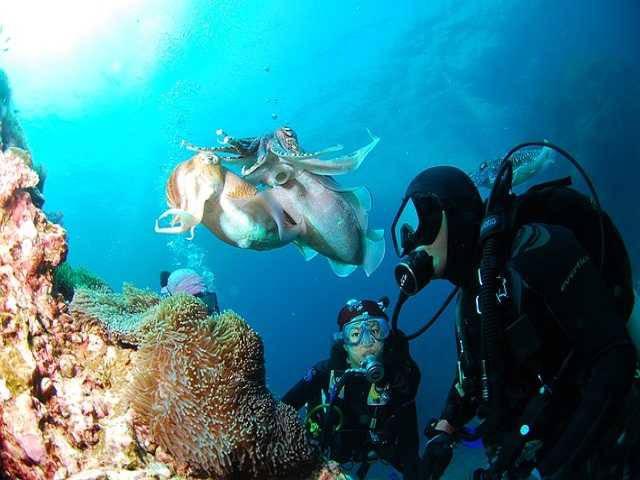 Humans are simply incapable of staying put.
Humans are simply incapable of staying put.
People circumnavigated the globe when they looked at the ocean and wondered what lies beyond. They mapped out the stars when they looked up and wondered what lies above. Today, our ingenuity has allowed us to rocket to the ends of our solar system. Meanwhile, our knowledge of the ocean is essentially nil. People are now wondering what lies beneath, and everybody can take part in rectifying the situation.
All we need is a couple of tanks on our backs.
Diving Bells and Whistles
It is not that people refused to explore the depths of the sea. We have been trying to reach the ocean floor since man first learned how to fish. Our bodies’ tendency to float just complicated past efforts, though. Diving bells, snorkels made from leaves, and even barrel helmets are testament to humanity’s desperate desire to roam the depths.
Now, scuba gear makes underwater exploration simpler and safer. Largely inspired by the creatures of the sea, the suit is an embodiment of what happens when the thing we want to do overlaps with the rules that dictate we cannot.
Open and Closed
Invented in 1943 by France’s Émile Gagnan and Jacques-Yves Cousteau, the open circuit self-contained underwater breathing apparatus (S.C.U.B.A) is the first iteration of the modern suit. The ‘aqualung’, as it was called at the time, worked by expelling the air its user exhales into the water while pumping breathable gas into a mouthpiece. Commonly used in recreational scuba, tourists and locals use this variant to witness the beauty of the world’s shallow waters.
On the other hand, the closed circuit scuba suit leans more toward scientific and military purposes. During the Second World War, these ‘frogmen’ suits let its wearer ‘re-breathe’ his own air, which is filtered of carbon dioxide. This proved helpful in stealth missions where air bubbles meant detection by enemies. Tauranga diving experts say that lengthy and deeper dives call for closed circuit scuba gear because of its higher gas efficiency.
With the world constantly trying to stimulate our senses and quench our thirst for knowledge, diving into the unknown presents an opportunity to participate in something new and meaningful. Divers are mere visitors who must remain respectful of the ocean and its inhabitants, since fully defining what the ocean holds requires it to keep being there.

